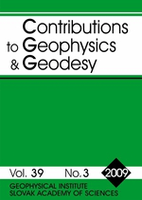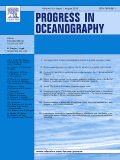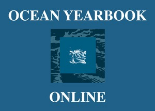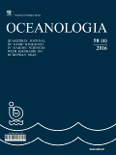
Bollettino di Geofisica Teorica ed Applicata
Scope & Guideline
Innovating Research in Geophysics and Ocean Sciences.
Introduction
Aims and Scopes
- Marine Sciences and Oceanography:
The journal addresses various aspects of marine sciences, including sustainable management of marine resources, ocean health, and the impacts of climate change on marine ecosystems. - Geophysical Investigations and Techniques:
It publishes studies utilizing advanced geophysical techniques such as seismic analysis, ground-penetrating radar (GPR), and fluid-dynamic modeling to understand subsurface structures and processes. - Environmental and Climate Change Research:
Research focusing on the implications of climate change, environmental risks, and sustainable practices is a significant aspect, highlighting the journal’s commitment to addressing global challenges. - Technological Innovations for Sustainability:
The journal emphasizes the role of technology and digital innovation in enhancing sustainability, particularly in the context of the Blue Economy and eco-sustainable practices. - Interdisciplinary Collaboration:
It promotes collaborative research across various fields, integrating insights from geophysics, marine science, environmental studies, and technology to foster comprehensive solutions to complex challenges.
Trending and Emerging
- Sustainable Blue Economy:
A significant number of recent articles focus on the Blue Economy and sustainable practices, highlighting the importance of marine resource management and youth employability in coastal regions. - Climate Change Adaptation and Mitigation:
There is an increasing emphasis on research addressing climate change, including strategies for mitigating its impacts on marine ecosystems and coastal communities. - Technological Integration in Environmental Science:
The role of technology in advancing environmental science, particularly through digital innovations and data-driven approaches, is a rising theme, indicating a modernized approach to geophysical research. - Interdisciplinary Approaches to Marine and Environmental Challenges:
Emerging themes highlight the importance of interdisciplinary collaboration, integrating various scientific domains to tackle complex challenges related to ocean health and sustainability. - Youth Engagement and Employability in Marine Studies:
Research focusing on youth employability within the context of marine and environmental sciences suggests a growing recognition of the need for education and engagement in these sectors.
Declining or Waning
- Traditional Seismology:
There has been a noticeable decline in papers focusing solely on traditional seismological studies, indicating a shift towards more integrated approaches that combine seismology with other environmental sciences. - Historical Geological Studies:
Research centered on historical geological formations and their impacts seems to be less frequent, possibly overshadowed by contemporary issues such as climate change and sustainable practices. - Land Deformation Studies:
The focus on land deformation related to traditional resource extraction practices is declining, as the journal pivots towards broader environmental and sustainability themes. - Oil and Gas Exploitation Impacts:
There is a waning interest in papers that primarily discuss the impacts of oil and gas activities, reflecting a potential shift towards alternative energy sources and sustainability initiatives.
Similar Journals

OCEAN DYNAMICS
Exploring the Depths of Ocean ScienceOCEAN DYNAMICS is a premier peer-reviewed journal published by Springer Heidelberg, dedicated to advancing the field of oceanography. With an ISSN of 1616-7341 and an E-ISSN of 1616-7228, the journal has established itself as a key resource for researchers and professionals interested in the dynamic processes of the world's oceans. As of 2023, it holds an impressive Q2 category ranking in Oceanography, placing it among the top journals in its field (Rank #34/145, 76th percentile in Earth and Planetary Sciences). Although operating under a traditional publishing model without open access options, OCEAN DYNAMICS continues to provide valuable insights and a platform for innovative research, boasting coverage from 2001 to 2024. Researchers and students alike will benefit from this journal's commitment to showcasing cutting-edge studies that enhance our understanding of oceanographic phenomena.

Contributions to Geophysics and Geodesy
Connecting Scholars to Transform Geophysical UnderstandingContributions to Geophysics and Geodesy is a distinguished open access journal dedicated to advancing the field of geophysics and geodesy, published by the SLOVAK ACADEMY OF SCIENCES, EARTH SCIENCE INSTITUTE. With a rich publication history since its inception in 1992 and a commitment to open access since 2009, this journal serves as a vital platform for disseminating innovative research and critical insights in Earth sciences. Although it currently holds a Q4 ranking in the Geophysics category and is positioned in the 29th percentile, it continues to foster scholarly dialogue and enhance the visibility of significant findings in the community. Situated in Slovakia, the journal's address underscores its international reach and relevance. Researchers, professionals, and students alike will find valuable resources and perspectives within its pages, aiming to bridge gaps in knowledge and contribute meaningfully to the ongoing global discourse in geophysical sciences.

THALASSAS
Navigating the Future of Oceanography and Aquatic ScienceTHALASSAS is a prominent academic journal specializing in the fields of Aquatic Science and Oceanography, published by Springer International Publishing AG. Established in 2005 and running through 2024, this journal serves as a vital platform for sharing groundbreaking research and innovative findings related to the marine environment and its ecosystems. With an ISSN of 0212-5919 and an E-ISSN of 2366-1674, THALASSAS is indexed in Scopus and currently holds a Q3 classification in both Aquatic Science and Oceanography for 2023, reflecting its relevance and contribution to these scientific disciplines. Although it does not follow an Open Access model, THALASSAS offers valuable insights for researchers, professionals, and students interested in sustainable ocean management and aquatic biodiversity. Its rigorous peer-review process ensures that published articles meet the highest standards of academic quality, fostering a deeper understanding of marine sciences and addressing critical issues facing aquatic systems today.

Ocean and Coastal Research
Innovating research for thriving coastal communities.Ocean and Coastal Research, published by the Institute Oceanográfico of the University of São Paulo, is an essential academic journal dedicated to advancing the fields of Aquatic Science, Oceanography, and Water Science and Technology. Established in 2020, the journal has quickly become a noteworthy platform contributing to the understanding and sustainable management of marine and coastal ecosystems, with an open access model that promotes the dissemination of critical research findings. Although currently categorized in the fourth quartile across its respective fields in 2023, the journal serves as an emerging repository of valuable insights for researchers, professionals, and students alike, aiming to make impactful discoveries that address contemporary challenges in ocean conservation and resource management. The journal's editorial team is committed to fostering interdisciplinary collaboration and upholding rigorous peer-review standards, thereby ensuring high-quality contributions that reflect the dynamic nature of marine science. With an E-ISSN of 2675-2824, all access to published articles is freely available, supporting global research efforts addressing crucial environmental issues.

OCEANOGRAPHY
Fostering Collaboration in Ocean SciencesOCEANOGRAPHY is a premier journal dedicated to the field of ocean sciences, published by the esteemed OCEANOGRAPHY SOC. With an impressive Q1 ranking in Oceanography and a Scopus standing of #25 out of 145 in Earth and Planetary Sciences, this journal serves as a critical platform for disseminating high-quality research. Since its inception in 1992 and transitioning to an Open Access model in 2007, OCEANOGRAPHY has been committed to providing unrestricted access to groundbreaking studies, fostering collaboration and innovation within the international scientific community. Researchers, professionals, and students alike can explore a wide range of topics, including marine ecosystems, ocean circulation, and climatic influences, making it an essential resource for anyone invested in understanding our oceans. With its headquarters in Rockville, MD, USA, it brings together a diverse body of work that is pivotal for advancing knowledge in the critical arena of oceanography.

Ocean Science
Connecting Scholars through Oceanic InsightsOcean Science, published by COPERNICUS GESELLSCHAFT MBH, stands as a premier Open Access journal in the fields of Oceanography and Paleontology, with a commendable impact factor that highlights its influence in the scientific community. Since its inception in 2005, Ocean Science has provided a vital platform for the dissemination of innovative research and discoveries, boasting prestigious rankings of Q1 in both Oceanography and Paleontology categories as of 2023, along with impressive Scopus rankings (7th in Paleontology and 28th in Oceanography). Based in Göttingen, Germany, the journal's commitment to open access ensures that groundbreaking research is readily available to a global audience, fostering knowledge sharing and collaboration among academics, professionals, and students alike. As it converges towards its 20th anniversary in 2024, Ocean Science continues to be an essential resource for those dedicated to advancing our understanding of the marine environment and its geological history.

PROGRESS IN OCEANOGRAPHY
Exploring the Depths of Ocean SciencePROGRESS IN OCEANOGRAPHY is a pivotal journal published by PERGAMON-ELSEVIER SCIENCE LTD, dedicated to advancing the field of oceanographic research and exploration. With an ISSN of 0079-6611 and an E-ISSN of 1873-4472, this esteemed publication has been disseminating significant findings from 1963 and continues to be a cornerstone in aquatic sciences and geology, holding a distinguished Q1 ranking in both categories as of 2023. The journal primarily focuses on innovative research that contributes to our understanding of ocean processes, marine ecosystems, and the impact of human activities on the oceans. Its exclusive access model facilitates the dissemination of high-quality content that resonates with researchers, professionals, and students alike, ensuring that vital insights are accessible to the global scientific community. With a firm commitment to upholding rigorous scientific standards, PROGRESS IN OCEANOGRAPHY remains an influential platform for the communication of groundbreaking research, providing scholars with invaluable resources to drive future oceanographic studies.

Ocean Yearbook
Empowering Research in Marine Law and Environmental PolicyOcean Yearbook, published by BRILL, is a leading academic journal in the field of maritime law and ocean governance, providing a comprehensive platform for researchers and practitioners in this vital area. With an ISSN of 0191-8575 and E-ISSN 2211-6001, this journal offers valuable insights and critical analyses on contemporary issues affecting the world's oceans, promoting interdisciplinary dialogue among scholars in law, environmental studies, and policy-making. Currently ranked in the Q2 quartile for Law, this journal is positioned among the top-tier publications, reflecting its commitment to academic excellence and relevance. Ocean Yearbook is essential reading for those looking to stay abreast of legal developments and emerging challenges in ocean governance, contributing significantly to policy discussions and academic scholarship worldwide. Its accessibility through subscription, combined with its ongoing commitment to high-quality research, makes it an indispensable resource for students, researchers, and professionals dedicated to understanding and protecting marine ecosystems.

OCEANOLOGIA
Illuminating the Wonders of the OceanOCEANOLOGIA, a distinguished academic journal published by the Polish Academy of Sciences, Institute of Oceanology, serves as a pivotal platform for researchers and professionals in the fields of Aquatic Science, Oceanography, and Ocean Engineering. Established in 1973 and transitioning to Open Access in 2011, this peer-reviewed journal promotes the dissemination of high-quality research across its diverse scope of ocean-related topics, aligning with its commitment to advancing marine science. With a notable impact factor underscored by its positioning in the Q1 and Q2 quartiles of recognized categories, OCEANOLOGIA stands out with impressive Scopus Rankings, including 49/247 in Aquatic Science and 24/105 in Ocean Engineering, reflecting its significance in the global research landscape. The journal's dedication to publishing cutting-edge studies ensures that it continues to influence both academic discourse and practical applications in ocean-related fields, making it an essential resource for students, researchers, and professionals aiming to contribute to the advancement of oceanic studies.

OCEANOLOGY
Diving into Innovative Marine ResearchOCEANOLOGY is a distinguished journal published by Pleiades Publishing Inc that has been a pivotal platform for advancing knowledge in the field of oceanography since its inception. With an ISSN of 0001-4370 and E-ISSN 1531-8508, this journal covers a range of topics related to marine sciences, geographical oceanography, and environmental studies, providing insights and research that significantly contribute to our understanding of oceanic systems. Recognized for its academic rigor, OCEANOLOGY holds a Q3 quartile ranking in the Oceanography category as of 2023, reflecting its impact within the scientific community as evidenced by its Scopus rank of 85 out of 145. Although currently not an open-access journal, OCEANOLOGY remains essential for researchers, professionals, and students by offering a comprehensive collection of peer-reviewed articles. This multidisciplinary approach equips its audience with valuable data and perspectives critical for ongoing research and development in ocean-related fields.